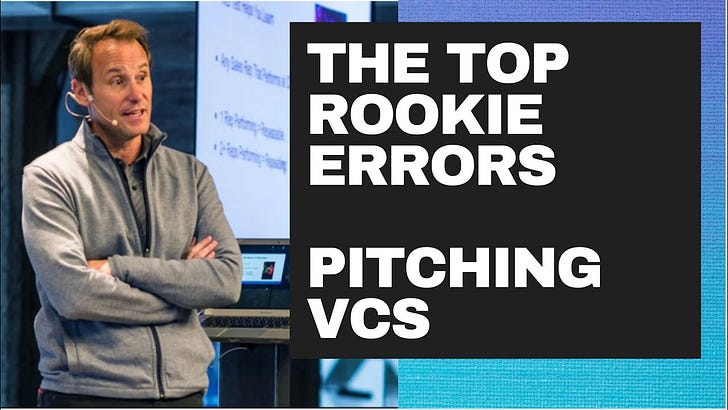Dear SaaStr: What Ways Do VCs Take Advantage of Founders?
And Should I Call Myself Owner, Founder, or CEO?
Dear SaaStr: What Ways Do VCs Take Advantage of Founders?
I've had some relatively negative VC experiences as a founder (and some good ones), and I'm a VC now, and I don't think you can really be "screwed" by VCs ... because it's a financial transaction, and it's a negotiation.
No one forces you to take millions of dollars in investment to help grow your company faster.
But — you can be taken advantage of. Because most of us haven't raised VC capital before.
There are some basic things I'd avoid:
Be wary of low-priced secondary liquidity. Getting cash out can sound so great when you've worked so hard. But if you sell some of your hard-earned common stock at say a $40m valuation, and the company does the next round at $400m, you really will feel like an idiot.
Be wary of boards that don't proportionately reflect ownership. I've gotten zen about boards of directors and my view is they should roughly reflect ownership. If you sell 20% of the company, the VC can have 1 seat, you keep 4. If you sell 40%, VCs get 2, you get 3. Etc. etc. You can tweak this, but anything that creates more seats than are "earned" by ownership ... don't do it. Also don't do the "outside director that really is a friend of the VC" thing, unless it's someone you really want, too.
Be wary of VCs that have invested in your direct, or very adjacent competitors that want to meet with you. This isn't really that big of a deal, but 9 times out of 10, they're just fishing for information and will share it back to your competitors. This isn't that big of a deal (nothing is all that secret on the internet these days), but what it is, is a huge waste of your time.
Be wary of VCs from big funds that push you to spend too much. This can get you into trouble, especially if you do it before you are ready. Sometimes, the more you raise, the more you are pushed to spend … and it can all run out. This is especially common when a big fund invests fairly early (e.g., Series A) and tries to run a later-stage playbook.
Be just a little skeptical of The Exec They Bring In (but sometimes it can be great). Be wary of some 'consultant' or VP that's been working at a VC firm that they want to bring into your company. Sometimes, this is really great. If they happen to have a great VP for you that is hanging out at the VC firm -- grab her or him. But once in a while, that Exec From Down The Hall is really someone put in to potentially take over the company. Really only an issue with Big VC firms when you sell a lot of the company. Not an issue if you've only sold a small portion of the company, still control the board, etc.
Ultimately, you want someone that has your back. It's not about you, it's about the company, true. But it's your company. Pick the best VC for you. But pick someone that has your back. If you don't feel it ... even if the brand is right, the background is right, the smiles go on for miles ... pass. Find another. Even at a substantially lower price. Because you'll be stuck with this partner for many, many years.
Dear SaaStr: Should I call myself an owner, founder or CEO?
Call yourself CEO. Although, perhaps say it in a neutral tone, with no bravado.
I always thought the title was a bit silly when running tiny start-ups.
But I missed an important point: Customers, Prospects, Recruits and Media like to talk to “the CEO”.
Even if it’s the CEO of a 5-person startup.
Customers, especially. They want to build a personal relationship with the CEO, the one person who is making a true commitment back to them on the 5+ year customer journey.
Use that title, at least externally.
Internally, if you prefer Founder, Chief Fixer, Trash Pickeruper, or whatever, understood. I did.


